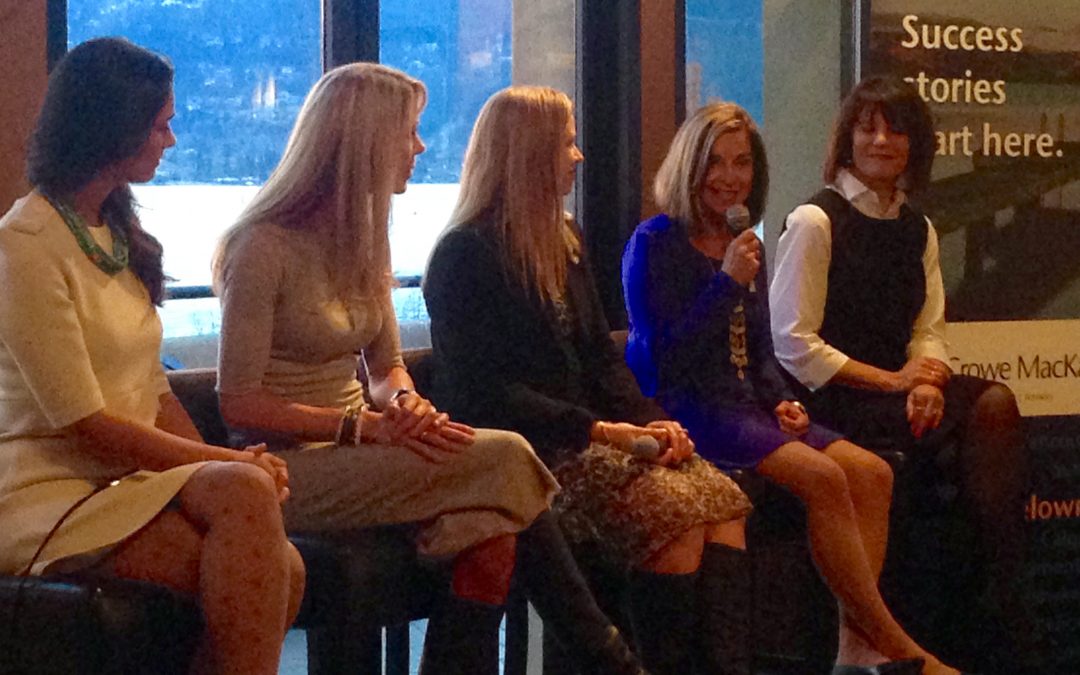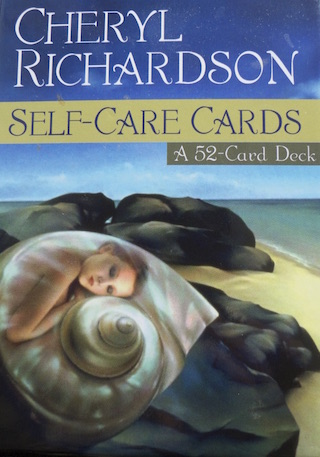
by pam | Mar 24, 2016 | Beliefs & Values, High Achieving Women, Proven strategies, Stress Management, Women in Business
Burnout and extreme stress are on the rise globally. The Japanese even have a word for what can result from extreme stress “karoshi” or death from overwork[1]. International cross-cultural studies[2] show that those in the helping professions (e.g. social workers, nurses, physicians, development professionals), and high achievers, are at higher risk for burnout than the general population. The curious thing about high or over-achievers is that we tend to work harder when we get closer and closer to burnout. It’s almost like we believe we are invincible!
I recall when I was close to burnout a few years ago, how I kept pushing and pushing and NOT listening to my body. I had pushed through fatigue to finish that one last thing for many years, and was healthy (or so I thought) with no noticeable side effects. Until late 2012, when all that changed. After 13 months in Afghanistan followed by 12 months working with an NGO on projects in 7 countries in Asia and Africa, I finally realized I was exhausted and made a decision to STOP and take a much-needed break.
Causes
In general, people are expected to work longer and harder to get ahead. I recall a client sharing when she was articling to be a lawyer that she stayed at her desk for several hours after she had completed all of her work by 4:30 pm because the organizational culture expected articling students to always stay late. I’ve consulted with organizations where people apologized for not checking email while on vacation. One VP shared that this was the first vacation she had taken in 10 years!
Many organizations provide their managers and supervisors with smart phones and do not set clear boundaries related to emails and texts. People feel “chained” to technology 24/7. They feel like they have little or no time for themselves or to spend with family and friends. This causes stress in relationships, and in particular in women, leading to feelings of guilt about not being a good mother, partner or friend.
Organizations tend to reward individuals rather than teams, which encourages competition rather than collaboration among their managers and staff and further aggravates the stress. In a world where information and the logical left brain is valued more highly than intuition and our creative right brain, we have learned NOT to listen to our bodies and to focus on “doing” rather than “being”. Working in an organization or position/profession that is not aligned with your core values can also lead to burnout or adrenal fatigue.
Burnout and Adrenal Fatigue
Dr. Sherrie Bourg Carter in her book High Octane Women states that: “burnout occurs when chronic stress and frustration lead to:
- Physical and emotional exhaustion
- Feelings of cynicism and detachment
- A sense of ineffectiveness and lack of accomplishment.” (p. 16)
Dr. James Wilson in his book Adrenal Fatigue The 21st Century Stress Syndrome notes that :
“adrenal fatigue occurs when the amount of stress [physical, psychological, emotional, infectious, environmental or a combination of these] overextends the capacity of the body (mediated by the adrenal [glands]) to compensate and recover from that stress or the combined stresses. Once this capacity to cope and recover is exceeded, some form of adrenal fatigue occurs. “ (p. 11)
In general, traditional medicine does not recognize adrenal fatigue. Naturopaths and alternative medicine practitioners do. When you look at the research related to adrenal fatigue and burnout the symptoms overlap.
Symptoms
Do you feel exhausted? Have you lost your passion? Do you feel like your life is all about work and there’s no time for fun? If so, you may be suffering from burnout or adrenal fatigue
Other symptoms include:
- Insomnia (difficulty sleeping, mind often racing)
- Feeling tired on awakening; even after sleeping 10 plus hours
- Afternoon energy crash followed by a burst of energy later in the evening
- Anxiety
- Irritability
- Loss of enjoyment
- More prone to colds or flu
- Apathy
- Loss of appetite
- Feeling cold when others aren’t
- Reduced libido
- Difficulty focusing
- Reduced productivity
A free online assessment for Adrenal Fatigue is available at http://www.adrenalfatigue.co.nz/dr-wilsons-adrenal-fatigue-questionnaire/
What to do about it
- Unplug from technology at least 90 minutes before you go to bed
- Start listening to your body. When you feel tired take a short nap (e.g. 15 to 30 minutes if you can) or go for a short walk (15 to 30 minutes)
- Sleep at least 8 hours a night and go to sleep before 11 pm
- Schedule blocks of time in your calendar for you (e.g. work out at the gym, lunch with a friend, concert with your partner)
- Do some type of physical activity daily
- Eat a healthy diet with a variety of unprocessed foods including fruits, vegetables, legumes, whole grains (plant-based foods are best); poultry and fish
- Limit your alcohol and caffeine intake
- Begin yoga and if you enjoy it try to do it 3 times a week
- Meditate daily for 10 minutes or more
- Nurture yourself daily (e.g. have a bubble math, massage, listen to relaxing music, do something you love)
- Spend time in nature (aim for 3 times a week for 30 minutes each time)
- Make a list of key activities you need/want to accomplish each day. At the end of the day go through the list and check off those you’re completed at the same time celebrating yourself and feeling it in your body (for examples of celebration see http://creativelivingcommunity.com/the-power-of-celebration-2/ )
- Focus on one thing at a time
- Make a clear differentiation between work and home time. For example, before leaving work say to yourself, I am now leaving work behind, or pick a point on your drive or walk home where you make a conscious choice to release work and step into “your” time.
- If you are no longer excited about your work, do a values-clarification exercise, and get clear on your core values[3] and what “lights you up”. Perhaps hire a life coach to work with you to assist with this and support you to integrate new behaviors into your life
- If symptoms persist and if you are continually fatigued even though you sleep 8 plus hours a night, and have lost your zest for life, go to a recommended naturopath or physician who is open to complementary therapies.
What strategies have you found helpful to reduce stress in your life? What new strategy do you plan to integrate into your life starting tomorrow? I’d love to hear your comments below. Feel free to share this post with a friend, colleague or family member.
[1] http://rt.com/news/221467-japan-workers-law-vacation/
[2] http://www.theguardian.com/women-in-leadership/2016/jan/21/spot-the-signs-of-burnout-before-it-hits-you?CMP=ema-1694&CMP=
[3] http://creativelivingcommunity.com/do-you-live-in-alignment-with-your-core-values/

by pam | Mar 8, 2016 | Conscious Living, Creative Living, High Achieving Women, Self-Care, Stress Management, Women in Business
The occasion of International Women’s Day provides us with an opportunity to reflect on and celebrate all those amazing women throughout history who have improved the lot of women world-wide, from getting the vote to enabling women to own their own property. It is also a time for us as women to celebrate ourselves. So often we give to others without honoring or giving to ourselves.
I challenge you to make 2016 the year when you give to and celebrate yourself.
Here are some suggestions:
- At the end of each day go through the list of things you have accomplished (It’s preferable to have written them out as part of your daily plan), check each one off and as you do that feel the positive energy in your body from each accomplishment; truly celebrate YOURSELF.
- Make a list of things you do to nurture yourself. Add some others that you would like to begin integrating into your life. This could include starting yoga classes three times a week, taking regular walks in nature or taking a weekly bubble bath surrounded by candles.
- Make a list of the 5 people in your life who “fill you up” and energize you, and those people who “suck your energy”. Commit to spending as little time as possible with those who “drain your energy” or radiate negative energy. Spend as much time as possible with those people who “fill you up”.
- Make an effort to reach out for and ask for support regularly. For many of us, especially those who are used to always helping and being there for others, this can feel uncomfortable at first. Start with something small and over time “up the ante”. Notice how you feel before, during and after reaching out and asking for support. It’s like a muscle; the more you exercise it, the easier it becomes. You may also find that people are more than happy to support you, as showing your vulnerability enables them to connect with you more easily.
One last point; remember that we are all the same. Regardless of culture, race, ethnicity, or social class we all want to be loved, to belong, to feel special and to be respected. Smile at each woman you see today. Notice what happens.
Here’s to YOU; to the wise, loving and special woman that you are!
I invite you to share how you honor and celebrate yourself below. I welcome your shares on what happens when you make smiling a regular habit in your life (if you haven’t already 🙂 ).

by pam | Feb 16, 2016 | Conscious Living, Creative Living, High Achieving Women, Self-Care, Stress Management, Work/Life Balance
February is known as the month of love. During this time, many of us think of our primary relationships, of romance and of Valentine’s Day. What I know to be true is that we need to truly love ourselves before we can cultivate deep and satisfying relationships with others.
Many of us have been socialized from a young age to always give to others before ourselves. We may feel guilty if we take time for ourselves; such as having lunch with a friend, or to nurture ourselves; such as having a massage.
What happens if we constantly give to others without giving to ourselves? We may become resentful. For example, if we’re always giving to a friend, and when we ask for help, she doesn’t have time for us. We often become less tolerant and our patience wears thin so we react to our partners, children and co-workers in a reactive manner, rather than mindfully and sensitively. Over time we become exhausted. Do you relate? We all need and deserve some time for ourselves and to care for ourselves.
What activities do you regularly integrate into your life to nurture yourself?
For me doing yoga three to four times a week is extremely important. Meditating daily is also a way for me to ground and relax. Bubble baths with lavender bath salts is a self-care strategy of choice. For you, regular massages with a trusted practitioner may be your top nurturing behavior.
Make a list of the things you do already to nurture yourself. Add to the list other things you would like to begin doing. Cheryl Richardson’s best-selling book The Art of Extreme Self Care is a great resource that offers 12 strategies to transform your life one month at a time. Get into action by putting your self-care strategies in your calendar (e.g. yoga classes), and by scheduling appointments with your favorite massage therapist, or lunch with a dear friend.
Remember, YOU are precious and deserve to be nurtured.
What self-care strategies do you employ to nurture yourself? How do you feel during and after doing something for yourself? I welcome your comments and strategies below. Feel free to share this post with a friend.

by pam | Jan 25, 2016 | Coping with Change, Discovering Your Passion, High Achieving Women, Life Purpose, Women in Business
How do you know when it’s time to leave a position or career that no longer excites you?
What I’ve discovered in working with clients over the past 7 years, is that when we’re stuck in one part of our life, we’re usually stuck in other parts as well. The good news is when we take action on one aspect of our lives, we usually get “unstuck” and also move forward in other parts of our lives (e.g. in our relationships).
Here are some signs it is time to make a change:
- Work and/or life are no longer fun for you
- You are no longer challenged by or passionate about your work
- You may often feel “wound up” and find it hard to relax
- You feel SOoo tired
- You frequently catch colds or get sick
- You may be experiencing some new health issues
Barriers to Change/Moving Forward
What holds us back from leaving a position/career?
Barriers to change include:
- Guilt that we will let people down
- Rationalizing that we have invested so much time and money in a particular career/business that it doesn’t make sense to leave it
- Fear of loss of approval
- Fear of the unknown
- Rationalizing that we have a good job, are making good money, and that we should be happy
- Fear of not making enough money
- Believing that we will never find the career/business of our dreams
Tips to help you embrace change and move forward
- Rate yourself on a scale from 1 to 10 (1 being “thrive on it” and 10 being “scares me to death”) as to how you usually respond to change. How you’ve responded to life changes in the past will provide you with clues as to how you may respond to change now.
- Reflect on your past experience with life changes; what have you learned that has supported you to adapt and move forward positively?
- Change your perspective. View change as an opportunity: for self-growth and learning; for exploring new solutions and ways of doing things; for “putting on a new pair of glasses” and seeing the world differently.
- Slow down and go inside yourself. Instead of keeping yourself busy, create some time and space for yourself each day. Set aside time in your schedule for you. Spend at least 30 minutes a day meditating, journaling, walking in nature, being.
- Get in touch with and acknowledge your feelings. Don’t push away your feelings; experience them. This allows the process of healing from the inside out to begin.
- Express those feelings. Draw, journal, paint, dance…
- Nurture and take care of yourself. Make sure you eat well, get enough sleep, and exercise regularly. Do something special for yourself on occasion, such as going for a massage, having a bubble bath, buying a new outfit; remember you are special and deserve the best.
- Reach out for support. Ask a friend, family member or life coach to help you. Surround yourself with people who believe in you and are not judgmental.
Based on past experience, how do you know that it’s time to leave a position or career? What strategies have you found useful to propel you forward/embrace change? I invite your comments below. Feel free to share this post with others. If you would like some support to rediscover your passion and find the career or business of your dreams this may be of interest – http://creativelivingcommunity.com/coaching/one-on-one-coaching/

by pam | Jan 11, 2016 | Creative Living, Creativity, High Achieving Women, Proven strategies, Right brain, Women in Business

You may be thinking “creativity – I don’t have a creative bone in my body.” For many years I had the same belief, until some time ago I decided it would be fun to make pottery gifts for friends and family, so I signed up for classes at a local studio. I remember being in awe when the instructor did the demonstration and transformed a ball of clay into a beautiful object within a few moments. When I got my own ball of clay and started to create something on the potter’s wheel, I noticed the chatter leave my head. I got lost in the moment, felt like a child at play and was able to totally focus on what I was creating (otherwise there would have been a blob of clay on my wheel or on the floor!). And, the pottery bowls I made turned out surprisingly well.
Danny Gregory, in his book The Creative License (2006), states “the ability and need to be creative are hard-wired into all of us.” Often we don’t believe we’re creative, as we don’t see ourselves as musicians, painters or sculptors. Yet, if we examine our lives, we may find we’re creative at designing workshops, creating research projects, writing prose, cooking, dancing, gardening, coming up with “out of the box” strategies … .
So why is it important to connect with your creative side? When we connect with our right brains, we feel relaxed, it takes our mind off work, often we feel like a child at play. Research shows the value of the arts in promoting health and enhancing healing. Laura Cerwinske in her book Writing as Healing Art (1999) states that “the power of the written word stimulates the flow of emotions and readily opens the door to the subconscious.” She provides a number of processes and “assignments” for using writing as a way to heal ourselves and to tap into our creativity. Julia Cameron in The Artist’s Way: A Spiritual Path to Higher Creativity (1992) describes the importance of learning to “recognize, nurture and protect your inner artist (and in so doing)…you will learn ways to recognize and resolve fear, remove emotional scar tissue, and strengthen your confidence.”
Dr. Eugene Cohen’s[1] research demonstrates that creative expression is important for older people of all cultures and ethnic backgrounds, regardless of economic status, age, or level of physical, emotional, or cognitive functioning. His work and the programs of NCCA demonstrate how the arts can serve as a powerful way to engage elders in a creative and healing process of self-expression, enabling them to create works that honor their life experience.
What are the dangers of only using your left-brain, logical side and not taking the time to tap into your creative right brain? Gregory cautions that when we stifle our creativity “our minds grow narrower…we grow remote from others, categorizing and stereotyping the people we meet…we speed through life, wanting to get on to the next thing, unable to take pleasure in the moment.”
How do you tap into and express your creative side?
Sit down in a quiet place, free from distractions. Take a few deep breaths to relax yourself and close your eyes for a couple of minutes if you feel comfortable doing so. Ask yourself the following questions and write down your responses to them. Write down the first thing that comes to mind without judging or editing it.
- Are there any creative pursuits you did as a child but haven’t done for years? If so, what are they?
- Are there some creative or artistic pursuits you would be interested in exploring/trying out?
- Commit to either starting to integrate a childhood “passion” into your life or choose a new one such as “learning to play the piano” that perhaps you always wanted to do, but never took the time for or had the opportunity to do. Identify the next steps for taking action to integrate a new or “old” creative or artistic pursuit into your life. This could include: i) Do online research to identify people who teach piano locally and online by January 25, 2016. ii) Interview my top 3 piano teachers by February 10. ii) Sign up and commit to 3 months of bi-weekly piano classes by February 17.
- Support is important to many of us when starting something new and continuing with it. Enlist the support of a friend, colleague or family member to encourage and support you in your new endeavor, or invite them to join you in doing it.
To learn more about tapping into and expressing your creative side, I invite you to join me and 20 other experts at a fun, free online event “Juicy Life, Juicy You”. Check it out at: http://juicylifejuicyyou.com/PamThompson
What tools do you use to tap into and express your creative side? What benefits have you experienced from doing so? I welcome your comments below. Feel free to share this post with others.
[1] Eugene Cohen – founder of the National Center for Creative Aging (NCCA) – www.creativeaging.org

by pam | Dec 6, 2015 | Conscious Living, Creative Living, High Achieving Women, Proven strategies, Women in Business
 December is a great month to reflect on your achievements from the current year and to set intentions for the coming year. According to William Bridges[1] (based on 30 years of research), in order to move successfully from one life transition to another, it is important to let go of any negative emotions associated with it, to celebrate the positive aspects and lessons learned from it… and to get clear on your vision for a new relationship, career, business … . The end of a year may be considered the ending of a transition and the start of a new year, a new beginning.
December is a great month to reflect on your achievements from the current year and to set intentions for the coming year. According to William Bridges[1] (based on 30 years of research), in order to move successfully from one life transition to another, it is important to let go of any negative emotions associated with it, to celebrate the positive aspects and lessons learned from it… and to get clear on your vision for a new relationship, career, business … . The end of a year may be considered the ending of a transition and the start of a new year, a new beginning.
A process that I’ve found to be extremely useful for myself, and my clients is to answer the following questions and journal about them at the end of a year and before starting a new one.
Reflections:
What are the achievements I am most proud of in 2015?
What am I most grateful for this year?
What lessons have I learned regarding relationships, work experience, my own blind spots … over the past year?
Intentions:
What are my intentions for 2016 (in five areas)?
- Personal life – i.e. What my personal life looks and feels like. Note that it is important to write your intentions in the present tense as if you have already accomplished them. For example; “I am strongly connected to myself, my gifts, my fears, my strengths. I courageously uncover any and all fears, doubts and limiting beliefs that are holding me back from standing in my true power and fulfilling my larger vision and mission … .”
- Related to my Health – e. What my health looks and feels like. “I feel great! My body is toned, strong and flexible. I radiate health and vitality – physically, emotionally, socially and spiritually. I do yoga and meditate regularly and live a life of balance.”
- Financial – e. What my financial life looks and feels like. “ I average $_______ thousand a month in terms of income generation through Creative Life Coaching. I feel financially free and serene. I pay off my credit cards every month and my line of credit is paid off. … “
- Spiritual – i.e. What my spiritual life looks and feels like. “I continue to meditate daily and deepen my ability to go within and connect with the Universal wisdom. I continue to strengthen and listen to my body’s wisdom. … “
- Intellectual – i.e. What my intellectual life looks and feels like. “I am flexible, flowing and open to new ideas. I connect with my creativity easily and effortlessly. … I write and publish my first book on Creative Living this year, have a successful book launch and sell out my first printing very quickly… .”
I encourage you to experiment with the process above. Feel free to change the titles of the 5 areas suggested to ones that resonate for you. Reviewing your intentions quarterly and noting how you’re doing in relation to them, helps keep them top of mind and provides encouragement to move forward. Using your intentions as a “touch stone” at the end of each year to review your achievements is helpful.
Celebrating your accomplishments feels so good and is important to provide you with the energy and commitment to move forward and fulfill your intentions.
Best of luck reflecting on 2015 and setting bold intentions for 2016. To your health, happiness, fulfillment and inner peace!
I welcome your comments below and appreciate you sharing this post.
[1] Bridges, William. Transitions – Making Sense of Life’s Changes. Cambridge: De Capo Press, 2004.







